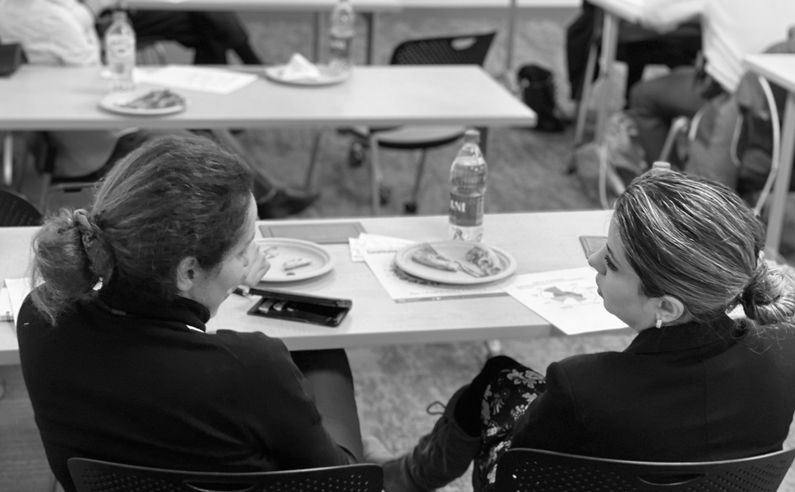Caring for the caregivers
Tracking burnout, challenges helps NIH trainees thrive

The life of a healthcare professional can be difficult: working long hours in an often hectic environment. When you add treating patients in the midst of a global pandemic, the stress levels can increase exponentially.
The Wellness Subcommittee of the NIH Graduate Medical Education Committee – which is supported by the Clinical Center's Office of Clinical Research Training and Medical Education – has been hard at work ensuring the well-being of the clinical fellows during the COVID-19 crisis.
The Wellness Subcommittee, which was established in 2019, is charged with monitoring and enhancing clinical fellow, resident and faculty well-being. The subcommittee consists of interdisciplinary members: from clinical fellows, staff clinicians, program coordinators and social workers to the NIH Civil Program and Employee Assistance Program (EAP) specialists. Given the unprecedented challenges of 2020, the Wellness Subcommittee stepped-up efforts on several projects to further meet the needs of NIH's clinical fellows.
The Clinical Fellow Buddy Program
This effort paired current clinical fellows together as peer buddies in the fall of 2020. Fifty-seven fellows who participated in the pilot program responded to a feedback survey which has helped to continue to mold the program.
"The buddy program has been a nice bridge to meeting people at the NIH, networking and finding friends/like-minded people. Assigned buddies takes away some pressure of connecting. I think it would be a great opportunity for the incoming fellows to get oriented as well," reported anonymous feedback on the program.
This summer, incoming clinical fellows will be matched to Senior Guides, who are current clinical fellows who will serve as mentors to guide the incoming fellows during their first six-month transition at the NIH. Additionally, these incoming clinical fellows will have the opportunity to be paired with a peer incoming fellow buddy by matching interests and career goals.
Organizers are hopeful that the peer buddy portion of the Clinical Fellow Buddy Program will allow social connection, support and information sharing as fellows progress through their training years.
The buddy program is a collaborative effort and spearheaded by Allergy/Immunology fellow and current NIH Clinical Fellows Committee Co-Chair, Dr. Stephanie Kubala.
Virtual one on one EAP information sessions
The NIH EAP is providing virtual one on one information session for all new clinical fellows. New fellows can meet with a specialist to learn about the program, various resources and lower the barrier to reaching out to the EAP if needed in the future. Trainees will be paired with counselors, all of whom have been trained specifically around resident training needs.
Systematic burnout tracking initiative
Burnout is common, especially among physician trainees, and can have many negative consequences. Job dissatisfaction, poorer quality of care, professional mistakes and absenteeism are just a few potential effects of burnout. Now more than ever, it is important to assess burnout and provide support to NIH's trainees. Participating programs administer a burnout survey semi-annually to trainees and program directors or designated faculty review the results with them.
Tracking burnout can provide programs with a guided, proactive and standardized way to discuss well-being with their trainees, monitor how the fellows are doing and track the main drivers of burnout within their programs.
If you have ideas for enhancing the well-being of NIH's clinical fellows or would like to join the Wellness Subcommittee, please email the subcommittee chair, Dr. Jennifer Cheng at mok-chung.cheng@nih.gov.
- Dr. Stephanie Kubala and Dr. Jennifer Cheng